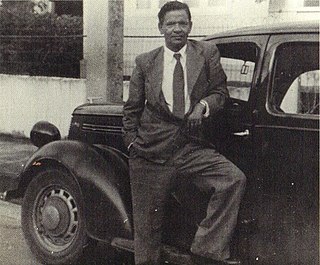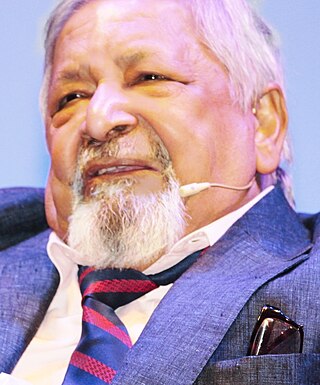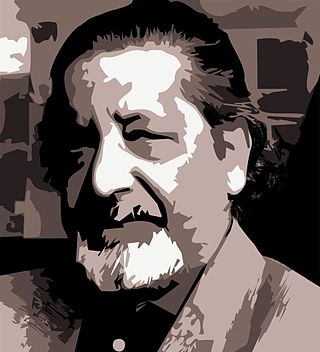Neil Devindra Bissoondath is a Trinidadian-Canadian author who lives in Quebec City, Quebec, Canada. He is a noted writer of fiction. He is an outspoken critic of Canada's system of multiculturalism and is the nephew of authors V. S. Naipaul and Shiva Naipaul, grandson of Seepersad Naipaul, grandnephew of Rudranath Capildeo and Simbhoonath Capildeo, and cousin of Vahni Capildeo.
Fireflies is a novel by Shiva Naipaul originally published in 1970. It was his first book, a comic novel set in Trinidad. In an essay in An Unfinished Journey, Naipaul described how in 1968 as a final year student at Oxford University studying Chinese, he had been moved to write down a sentence, which proved to be the beginning of his first novel, which he then worked on for the next two years. The novel was hailed on publication, winning the Jock Campbell New Statesman Award, the John Llewellyn Rhys Prize and the Winifred Holtby Memorial Prize.

A House for Mr Biswas is a 1961 novel by V. S. Naipaul, significant as Naipaul's first work to achieve acclaim worldwide. It is the story of Mohun Biswas, a Hindu Indo-Trinidadian who continually strives for success and mostly fails, who marries into the influential Tulsi family only to find himself dominated by it, and who finally sets the goal of owning his own house. It relies on some biographical elements from the experience of the author's father.
Shiva Naipaul, born Shivadhar Srinivasa Naipaul in Port of Spain, Trinidad and Tobago, was an Indo-Trinidadian and British novelist and journalist.

Rudranath Capildeo was a Trinidadian and Tobagonian politician, mathematician and barrister. He was a member of the prominent Hindu Indo-Trinidadian Capildeo family. Capildeo was the leader of the Democratic Labour Party (DLP) from 1960 to 1969 and the first Leader of the Opposition in the Parliament of the independent Trinidad and Tobago from 1962 to 1967. He was also a faculty member at the University of London, eventually holding the position of Reader of Mathematics. He was awarded the Trinity Cross, the nation's highest award, in 1969.

Simbhoonath Capildeo was a prominent lawyer and politician in Trinidad and Tobago. He was the elder brother of Rudranath Capildeo and uncle of Nobel laureate Sir Vidia "V. S." Naipaul and Shiva Naipaul. He was father to two sons, Surendranath and Devendranath Capildeo and a daughter, Sita Capildeo. Capildeo was one of the founding members of the Democratic Labour Party and a member of parliament from 1956 to 1966, becoming known as "the Lion of the Legislative Council". He served as the acting Leader of the Opposition for Bhadase Sagan Maraj and Rudranath Capildeo. Capildeo was also an important leader of the Hindu community in Trinidad and played in role in the foundation of the Sanatan Dharma Maha Sabha. In 1989 he was awarded the Chaconia Gold Medal by the Trinidad and Tobago government, honoring his service to the country.
Trinidad and Tobago literature has its roots in oral storytelling among African slaves, the European literary roots of the French creoles and in the religious and folk tales of the Indian indentured immigrants. It blossomed in the 20th century with the writings of C. L. R. James, V. S. Naipaul and Saint Lucian-born Derek Walcott as part of the growth of West Indian literature.

Seepersad Naipaul was a Trinidadian writer. He was the father of writers V. S. Naipaul, Shiva Naipaul and Savi Naipaul Akal, and married into the influential Indo-Trinidadian Capildeo family.

Black & White is a non-fiction book written by Shiva Naipaul and published by Hamish Hamilton in the U.K. in 1980. It was published with the title Journey to Nowhere: A New World Tragedy in the U.S. The book is based on Naipaul's trip to Guyana in the aftermath of the Jonestown Massacre, and his subsequent trip to the United States, in which he explored links between the People's Temple and other groups and individuals. Naipaul attempted to connect Rev. Jim Jones, founder of the People's Temple, with disparate parts of California's counterculture, and Guyanese and other Third World governments and the revolutionary ideologies which supported them. Naipaul was highly critical of these and other movements, including black theology, the nascent New Age movement and EST, in as much as they helped, in his analysis, to create fertile ground for the People's Temple to flourish on the two continents. The book's US paperback cover tagline reads "How American ideas and ideologies led to the mass suicide of 900 people in Jonestown, Guyana."
Beyond the Dragon's Mouth: Stories and Pieces is a collection of Shiva Naipaul's journalism and stories prefaced by a short memoir, published by Hamish Hamilton in 1984.
An Unfinished Journey is a posthumous collection of essays by Shiva Naipaul, published by Hamish and Hamilton in 1986.
A Hot Country was the last novel to be written by Shiva Naipaul and also his shortest in length. It was published in 1983.
British Indo-Caribbean people are British citizens, whose recent ancestors came from the Caribbean, and who further trace their ancestry back to India and the wider subcontinent. The UK has a large population of Indo-Caribbean people.

Sir Vidiadhar Surajprasad Naipaul was a Trinidadian-born British writer of works of fiction and nonfiction in English. He is known for his comic early novels set in Trinidad, his bleaker novels of alienation in the wider world, and his vigilant chronicles of life and travels. He wrote in prose that was widely admired, but his views sometimes aroused controversy. He published more than thirty books over fifty years.

The Capildeo family is an Indo-Trinidadian and Tobagonian family of Hindu pundits, politicians, and writers. The most notable members are 2001 Nobel laureate V. S. Naipaul and mathematician and politician Rudranath Capildeo. The ancestral home of the Capildeo family is known as Anand Bhavan and is in Chaguanas, Caroni County, Trinidad and Tobago. No-one today knows how the name Kapil transformed into Capildeo. It is possible that Kapil added dev, meaning God, from his village's name of Mahadeva Dubey to his name. Transliteration from Hindi to English was not well developed in the 19th century and words were spelt differently then from the way they are now. Thus, Kapil was changed to Capil and dev to deo, giving Kapil's descendants the surname of Capildeo.
Philip MacCann is a British author.
Nepal is a surname used by Hill Brahmin people of Nepal. The origin of people with surname Nepal is Nepa village of Dullu. It is considered that the surname Naipal or Naipaul has been Anglicization of the surname Nepal.

The 2001 Nobel Prize in Literature was awarded to the Trinidadian-born British writer Vidiadhar Surajprasad Naipaul (1932–2018), commonly known as V. S. Naipaul, "for having united perceptive narrative and incorruptible scrutiny in works that compel us to see the presence of suppressed histories." The Committee added: "Naipaul is a modern philosopher carrying on the tradition that started originally with Lettres persanes and Candide. In a vigilant style, which has been deservedly admired, he transforms rage into precision and allows events to speak with their own inherent irony." The Committee also noted Naipaul's affinity with the novelist Joseph Conrad:
Naipaul is Conrad's heir as the annalist of the destinies of empires in the moral sense: what they do to human beings. His authority as a narrator is grounded in the memory of what others have forgotten, the history of the vanquished.
Savitri (Savi) Naipaul Akal is a memoirist and former teacher from Trinidad. She is the daughter of author Seepersad Naipaul and his wife Droapatie, and the sister of V. S. Naipaul and Shiva Naipaul.







